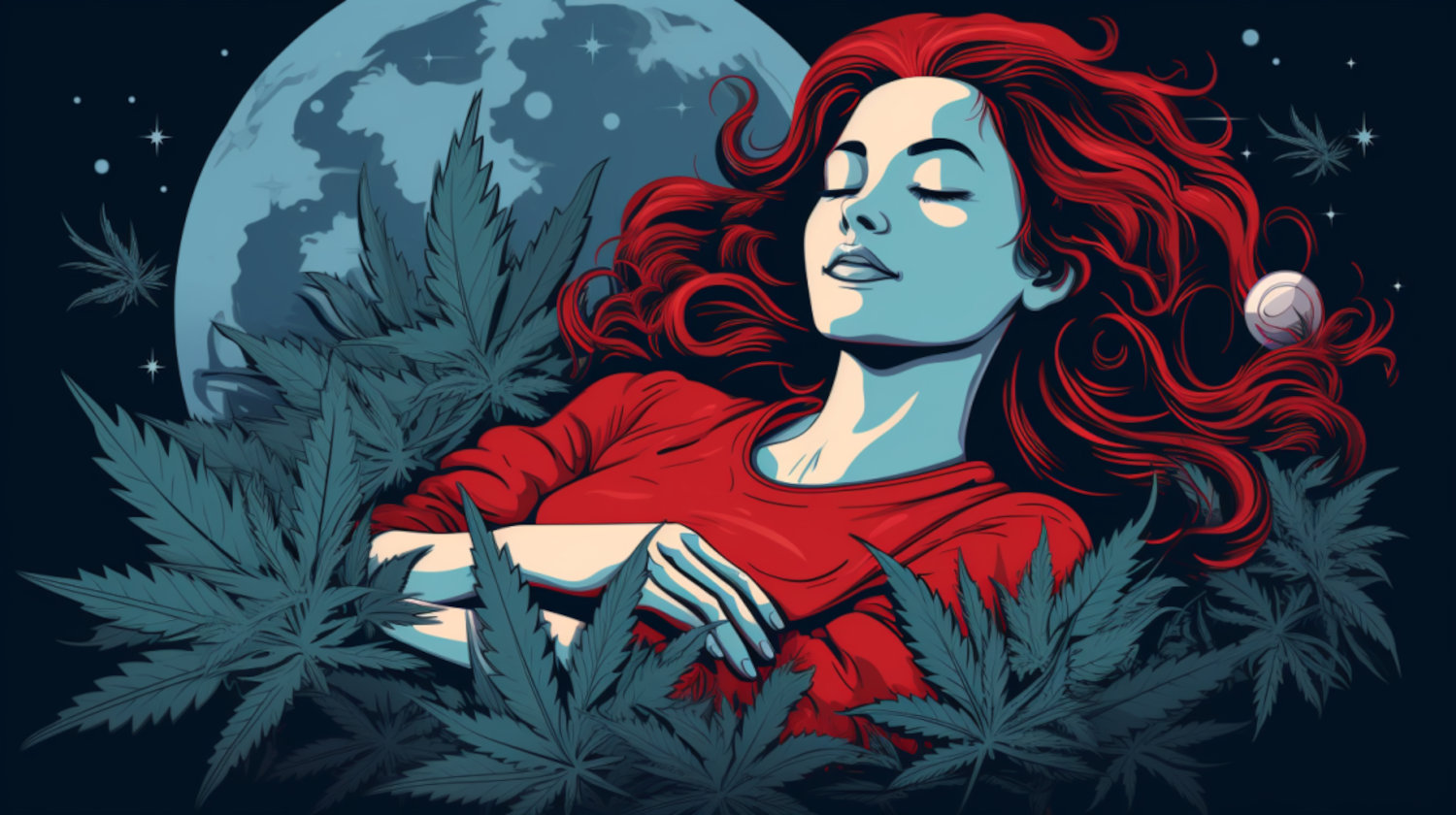Key Takeaways
- Anecdotal evidence and select lab studies suggest CBD could benefit PTSD patients.
- While CBD may help with PTSD, evidence suggests it’s best as a complementary treatment.
- With mixed results, CBD’s efficacy on PTSD remains subjective and up for debate.
Post-traumatic stress disorder, more commonly known as PTSD, is a relatively common and potentially debilitating mental health condition. PTSD is reported to affect approximately 6.8% of Americans at some point in their lives, with data from the National Comorbidity Survey Replication estimating that 3.5% of American adults experience PTSD within any given year.
CBD, a non-intoxicating cannabinoid found primarily in the hemp variety of the cannabis plant, is reported to deliver a range of beneficial effects. But can using CBD for PTSD really help? Many consumers report experiencing physical and mental relief, including a reduction in anxiety levels.
What is PTSD?
PTSD is a mental health condition brought on by traumatic events. These lasting detrimental memories can bring on several effects in a person's life, including:
- Flashbacks
- Nightmares
- Extreme anxiety
- Uncontrollable thoughts
- Spikes in anger
- Self-harm or suicide
Often associated with military personnel, PTSD can occur in any individual. Traumatic experiences can include:
- Dangerous or life-threatening events
- Negative childhood memories or experiences
- A lack of social support
Medications and psychotherapy are often considered essential steps in the path to recovery, with each patient requiring a different mixture of medicine and rehabilitation to treat their specific symptoms.
Benefits of Using CBD for PTSD

Researchers continue to explore the efficacy of CBD for PTSD treatment. However, current clinical data remains limited. Select studies supporting CBD's efficacy have noted that PTSD is linked to the increased expression of the body's CB1 receptors. CBD's ability to manipulate the endocannabinoid system has led some to believe it could provide therapeutic benefits to PTSD symptoms.1
Despite the theory, human trials have produced mixed results. So, the cannabinoid's impact on reducing PTSD symptoms remains up for discussion. However, CBD's potential abilities to lessen anxiety and improve sleep may suggest that it might have some effect on the condition’s symptoms.2
Anecdotal reports and case studies suggest that many patients experience benefits from CBD on their PTSD symptoms, like frequent nightmares.3 Activation of the CB1 receptors within the hippocampus is also thought to play a role in reducing the experience of intrusive memories.4
Overall, the research indicates that additional clinical studies are needed to clarify the relationship between CBD and PTSD.
CBD and PTSD: Are There Any Risks?
CBD is often reported to provide low to no risk for most consumers. However, studies have noted that there are several side effects often caused by drug-drug interactions. Some of the concerning side effects may include:5
- Liver abnormalities
- Diarrhea
- Fatigue
- Vomiting
Mixing cannabis with medication can produce unwanted outcomes like those listed above. With many PTSD patients using medication for treatment, anyone interested in using CBD as medication should first consult with a medical professional to reduce any potential interaction risks.
CBD as a Treatment for PTSD

Select research and a large number of anecdotes suggest that CBD may relieve some PTSD symptoms. However, numerous other lab studies indicate that CBD may not be as consistently effective as reported by some.
Anyone looking to use CBD for their PTSD symptoms like stress, nightmares, flashbacks, or otherwise is recommended to use the cannabinoid as a secondary option. It should not be a replacement for any existing treatments.
Tips for Using CBD for PTSD
CBD tends to present a low-risk profile for most consumers but should be used with caution, especially if other medications are being consumed. PTSD patients often use one or more medications to alleviate their symptoms already, so the cannabinoid may present a risk for adverse side effects if consumed simultaneously.
As such, patients are urged to consult with a medical professional before going forward with CBD or any cannabis as a treatment option. After consulting, if CBD feels like a viable option, the next step is to explore optimal dosage for ideal benefits.
Implementing the "start low, go slow" method is the best way to assess an individual's ideal dosage without overconsuming. As the name suggests, patients are recommended to start with a low dose of CBD, wait some time, and then decide if another dose is needed to reach the ideal result. Typically, a starting dose is around two-and-a-half to five milligrams but may vary depending on a person's previous experience with the cannabinoid and their current tolerance levels.
The consumer will ingest their targeted dosage and then wait between 30 minutes and 2 hours to evaluate the results. The wait time will be determined based on the consumption item used, with smoked and vape products felt much quicker than an edible, for example.6
For optimal results, consumers using CBD for PTSD symptoms, including stress, sleep issues, flashbacks, or otherwise, should avoid mixing the cannabinoid with alcohol. Only mix CBD with other drugs if a medical professional has explained the possible outcomes first.
Additionally, experts urge consumers to buy products from the regulated market, where products are more thoroughly vetted and tested for product safety and quality.7
Ask a Budtender: Which CBD Products are Best For PTSD?

Thanks to the experiences of patients and medical experts, the team at NuggMD learns about the relationships between conditions like PTSD and cannabis use every day. Budtenders are similarly on the frontline of the patient-professional experience.
In both cases, the answer is clear but broad: each person responds differently to CBD, making it hard to say which products, if any, are best for PTSD treatment. While fast-acting products, like CBD flower, concentrates and edibles, and sublingual tinctures, may be ideal for some, each person needs to sample products to determine which has the best effect on them.
Consumers should consider a few factors to help them buy the most reputable CBD products possible to treat their PTSD.
- Before purchasing, ensure that the retailer is licensed and reputable.
- Look for a QR code on the product's packaging or visit the brand's website for recent third-party lab studies to confirm its contents.
If this information is not available, consider purchasing alternative products.
References
- Abizaid A, Merali Z, Anisman H. Cannabis: A potential efficacious intervention for PTSD or simply snake oil?. J Psychiatry Neurosci. 2019;44(2):75-78. doi:10.1503/jpn.190021 ↩︎
- Sholler DJ, Schoene L, Spindle TR. Therapeutic Efficacy of Cannabidiol (CBD): A Review of the Evidence from Clinical Trials and Human Laboratory Studies. Curr Addict Rep. 2020;7(3):405-412. doi:10.1007/s40429-020-00326-8 ↩︎
- Elms L, Shannon S, Hughes S, Lewis N. Cannabidiol in the Treatment of Post-Traumatic Stress Disorder: A Case Series. The Journal of Alternative and Complementary Medicine. 2019;25(4):392-397. doi:https://doi.org/10.1089/acm.2018.0437 ↩︎
- Nacasch N, Avni C, Toren P. Medical cannabis for treatment-resistant combat PTSD. Frontiers in psychiatry. 2023;13. doi:https://doi.org/10.3389/fpsyt.2022.1014630 ↩︎
- Huestis MA, Solimini R, Pichini S, Pacifici R, Carlier J, Busardò FP. Cannabidiol Adverse Effects and Toxicity. Curr Neuropharmacol. 2019;17(10):974-989. doi:10.2174/1570159X17666190603171901 ↩︎
- MacCallum CA, Russo EB. Practical considerations in medical cannabis administration and dosing. European Journal of Internal Medicine. 2018;49(49):12-19. doi:https://doi.org/10.1016/j.ejim.2018.01.004 ↩︎
- MacCallum CA, Lo LA, Pistawka CA, Boivin M. A Clinical Framework for Evaluating Cannabis Product Quality and Safety. Cannabis Cannabinoid Res. 2023;8(3):567-574. doi:10.1089/can.2021.0137 ↩︎
The information in this article and any included images or charts are for educational purposes only. This information is neither a substitute for, nor does it replace, professional legal advice or medical advice, diagnosis, or treatment. If you have any concerns or questions about laws, regulations, or your health, you should always consult with an attorney, physician or other licensed professional.




